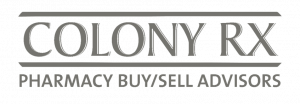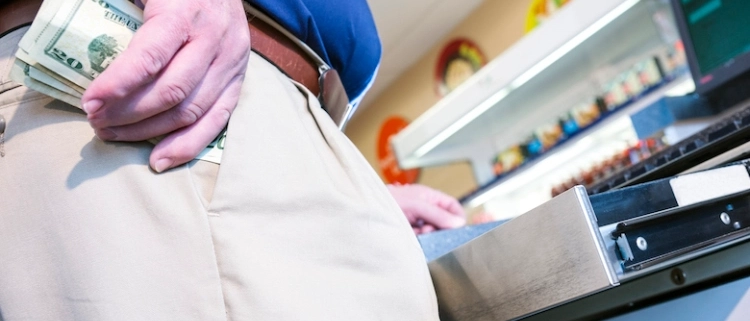How Pharmacy Employees Steal (and what to do about it)
How Pharmacy Employees Steal (and what to do about it)
U.S. retail workers are No. 1…in employee theft.
A Statistic Brain report states that 75% of employees have stolen least once from their employer. What is more, employee theft continues to cause more losses than shoplifting.
WHAT CAN PHARMACY OWNERS DO TO PREVENT THEFT? There are plenty of ways to prevent employee theft and minimize damages. Here are some of the things you can do. Main Steps The first step is to conduct a background check before hiring someone. Especially for new hires who have financial responsibilities. In retail, security cameras and cash drawer controls are helpful.
HOW PHARMACY EMPLOYEES STEAL
Some of the methods are pretty obvious, some are not. We are writing this because as a pharmacy owner, you need to be on the lookout for all of them. If you have any other methods (especially ones you found out about the hard way), reach out to us and we will include them.
Sometimes, the employees pharmacy owners trust the most are the ones who steal, and they justify this in so many different ways. Here are some of the the methods that employees use to steal from pharmacy owners:
- Most obvious, they just steak money from the register or safe or product from the shelves or order totes. To protect against this, run a perpetual inventory, have security cameras everywhere (especially on your cash register and controls).
- Pharmacies that cash or accept checks: The employee endorses the check to themselves.
- Employee who makes the bank deposit takes cash money out of the deposit bag.
- The employees write off pharmacy charge accounts for family and friends (or themselves).
- Employee finds the owner’s or pharmacy’s checks and writes themselves checks.
- More sophisticated: The employee creates a fake invoice and writes a check to pay that fake invoice.
- Employee uses the store or owner’s credit card.
- Employees who processes payroll add their friend who doesn’t work for the store or bloats their own hours.
- Pharmacy technician had a sister with a commercial insurance policy. Sister was responsible for a co-pay on the first $5000 of prescriptions. The sister ran a few expensive Humira and insulin scripts to use up the co-pay room allowing her sister to get future scripts without a co-pay. Caremark audited the scripts and accused the store of fraud. (We sold the store for this owner).
- Employee sets up return processing account. Gives the return processing account their personal bank information. Sends back returns and the return processor makes the deposits into the employee’s accounts. This one is clever because stores never know what to expect from the return processor.
- Technician changes cash price table for their mother’s script.
- Pharmacist offers to stay late and catch up on paperwork. C2’s are stolen.
- Most outrageous example we heard: Pharmacist had their friend stage a robbery in the store. The friend came in wearing a mask, put a bag on the counter and demanded C2’s. The police caught the friend who turned on the pharmacist.
Some Solutions to the above:
Employee theft is something most business owners have to deal with. However, that shouldn’t stop you from trusting your employees. The best thing is to take preventative measures. After all, you don’t want to sacrifice productivity gains because of theft fears and lack of trust. Workers who are treated well may repay their employers with honesty. Still, it’s probably best for any employer to keep an eye on the register and cabinet, and also take the following precautions:
- Use bill.com. Bill.com is software that processes AP and requires the owner to approve money going out. It also integrates with QuickBooks. Just be sure you, the owner, are the one who sets up the account and the approval parameters. It’s a great product but be warned that their customer service is atrocious. You will not be able to call them.
- You should have security cameras all over your store.
- Outsource payroll to someone offsite. They can steal from you as well, so watch them closely.
- Review your documents. Look at your payroll summary, and most important: look at your bank statements and know the patterns. If payroll spikes from an average of $10,000 to $11,000, this is something you should notice.
- Get all sensitive documents sent to your house, not the pharmacy.
- Do not let employees sign checks or require two signatures on checks (one of them is yours).
If you have any other stories, let us know by e-mail. And if you have a pharmacy that you are thinking about selling, please give us a call for a no-obligation, completely free discussion.




